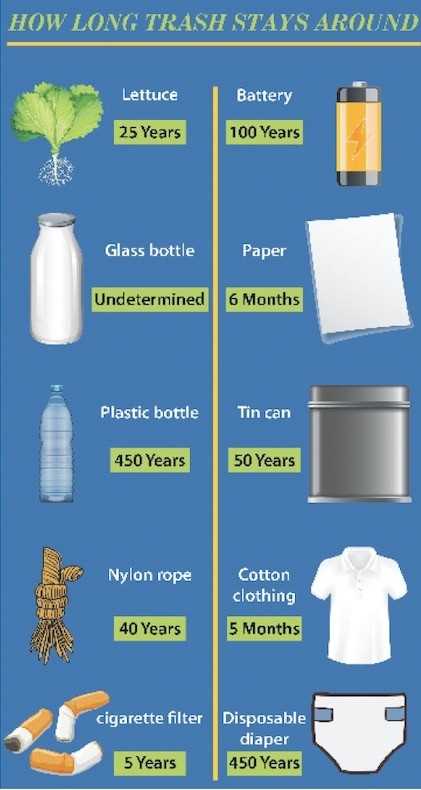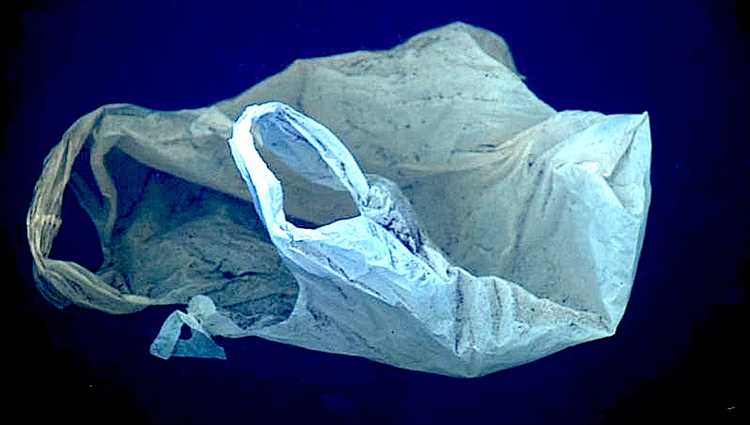
Plastic bags have become an integral part of our everyday lives, serving as a convenient means of carrying groceries, packing lunches, and storing various items. However, their widespread use has raised concerns about their impact on the environment. One of the key issues is their slow decomposition rate, particularly when they end up underground.
Many people mistakenly assume that plastic bags decompose quickly in landfills or when buried underground. This misconception stems from the fact that many organic materials, such as food waste, decompose relatively quickly and are often used as compost. However, plastic bags are made from non-biodegradable materials, which means they cannot be broken down by bacteria or other decomposers in the same way.
Studies have shown that the decomposition of plastic bags underground can take hundreds of years. This is due to the fact that plastic bags are made from polymers, long chains of molecules that are highly stable and resistant to degradation. As a result, plastic bags persist in the environment for an extended period, posing a threat to wildlife and ecosystems.
Understanding the duration of plastic bag decomposition underground is crucial for developing effective waste management strategies and reducing the environmental impact of plastic bags. By raising awareness about the long-term effects of plastic bag pollution, we can encourage individuals and businesses to adopt more sustainable alternatives, such as reusable bags or biodegradable materials.
- Plastic Bag Decomposition
- Environmental Impact of Plastic Bags
- Reducing the Environmental Impact
- The Role of Individuals
- Underground Decomposition Process
- Factors Affecting Decomposition
- Duration of Decomposition
- Factors Affecting Decomposition Time
- Research Studies
- The Importance of Proper Disposal
- Q&A
- What is the average time it takes for a plastic bag to decompose underground?
- What factors affect the decomposition time of plastic bags underground?
- Why is plastic bag decomposition important?
- Can plastic bags be recycled instead of decomposed?
- What are the environmental impacts of plastic bag decomposition?
Plastic Bag Decomposition
The decomposition of plastic bags is a complex process that can be influenced by various factors, including the type of plastic, environmental conditions, and the presence of microorganisms. In general, plastic bags made from polyethylene (PE) are the most common type of plastic bags and can take anywhere from 10 to 1,000 years to decompose.
When plastic bags end up in landfills, they can take even longer to break down due to the lack of sunlight and oxygen. The decomposition process in landfills is anaerobic, meaning it occurs in the absence of oxygen. Under these conditions, the decomposition of plastic bags is much slower, and they can remain intact for several hundred years.
In addition to landfills, plastic bags can also end up in bodies of water, such as rivers and oceans, where they pose a serious threat to marine life. Plastic bags can be mistaken for food by marine animals, leading to ingestion and entanglement. This can result in injury, suffocation, and death of marine animals.
Efforts to reduce plastic bag pollution have included the implementation of plastic bag bans and the promotion of reusable bags. However, the decomposition of existing plastic bags will continue to be a long-term environmental issue. It is crucial to raise awareness about the negative impacts of plastic bag pollution and encourage individuals to reduce their use of plastic bags and opt for more sustainable alternatives.
| Type of Plastic | Decomposition Time |
|---|---|
| Polyethylene (PE) | 10-1,000 years |
Environmental Impact of Plastic Bags
Plastic bags have become a ubiquitous part of our daily lives, but their environmental impact is significant and concerning. These bags are made from non-renewable resources, primarily petroleum, which contributes to the depletion of our natural resources and the emission of greenhouse gases.
One of the most significant environmental concerns is the impact of plastic bags on marine life. Numerous studies have shown that marine animals often mistake plastic bags for food, leading to ingestion and entanglement. This can result in severe injury or death for marine species such as sea turtles, dolphins, and seabirds. Additionally, the presence of plastic bags in aquatic environments can disrupt ecosystems and harm other marine organisms.
Another environmental concern associated with plastic bags is their contribution to landfill waste. Although plastic bags are often recyclable, many end up in landfills, where they can take hundreds of years to decompose fully. During this decomposition process, plastic bags release harmful chemicals into the soil and water, further polluting our environment.
Reducing the Environmental Impact
To address the environmental impact of plastic bags, it is essential to reduce their consumption and promote alternatives. One effective approach is the implementation of plastic bag bans or fees, which have been successful in many regions. By reducing the availability and usage of plastic bags, we can decrease the demand for petroleum-based products and minimize their environmental impact.
Encouraging the use of reusable bags is another effective strategy. Reusable bags are generally made from more sustainable materials such as cotton or canvas and can be used multiple times, reducing waste generation. Educating consumers about the benefits of reusable bags and providing incentives for their use can help shift behaviors and decrease the reliance on single-use plastic bags.
The Role of Individuals
While government regulations and policies are essential in reducing the environmental impact of plastic bags, individuals also play a crucial role. By making conscious choices, such as using reusable bags, refusing plastic bags at checkout, and properly disposing of plastic bags, we can all contribute to a more sustainable future. It is important to remember that small actions can make a significant difference when it comes to preserving our planet for future generations.
Underground Decomposition Process
When plastic bags end up underground in landfills, their decomposition process is significantly slower compared to other environments. This is due to the lack of oxygen and sunlight, which are necessary for the breakdown of plastic materials.
Plastic bags in landfills can take hundreds of years to break down completely. The exact duration varies depending on the specific conditions of the landfill, such as temperature, moisture levels, and microbial activity. In general, the anaerobic environment slows down the decomposition process.
The anaerobic decomposition process involves the action of microorganisms that do not require oxygen to survive. These microorganisms slowly break down the plastic bags through a series of chemical reactions. However, the rate of decomposition is very slow, and it can take centuries for a plastic bag to completely decompose.
During the decomposition process, plastic bags may release harmful substances into the surrounding soil and groundwater. These substances can have negative effects on the environment and may contaminate nearby sources of water, posing a threat to both humans and wildlife.
It is important to note that some plastic bags are designed to be more biodegradable or compostable, which means they can break down more easily and quickly under certain conditions. However, even these types of bags may still take a considerable amount of time to decompose underground.
To minimize the environmental impact of plastic bags, it is crucial to reduce their usage and promote more sustainable alternatives, such as reusable bags made from natural materials like cotton or hemp. Additionally, proper waste management and recycling programs can help divert plastic bags from landfills, ultimately reducing their underground decomposition duration.
Factors Affecting Decomposition

Several factors can affect the decomposition of plastic bags underground. These factors include:
1. Temperature: The temperature of the surrounding environment plays a significant role in the decomposition process. Higher temperatures can accelerate decomposition, while lower temperatures can slow it down.
2. Oxygen Availability: Oxygen is essential for the breakdown of organic materials. In the absence of oxygen, decomposition can be slower or even halted completely.
3. Moisture Content: Moisture is another crucial factor that influences decomposition. Higher moisture levels can create a favorable environment for microorganisms to break down the plastic bags more efficiently.
4. Microbial Activity: Microorganisms such as bacteria and fungi play a crucial role in breaking down organic materials. The presence of these microorganisms in the soil can enhance the rate of decomposition.
5. Polymer Type: The type of polymer used in manufacturing the plastic bag can affect its decomposition rate. Some polymers are more resistant to degradation, while others are more easily broken down by biological and chemical factors.
6. Soil Composition: The composition of the soil can also impact decomposition. Soil that is rich in organic matter and nutrients can provide a more favorable environment for decomposition to occur.
7. Burial Depth: The depth at which the plastic bags are buried can influence decomposition. Deeper burial depths may have less oxygen and microbial activity, resulting in slower decomposition.
Understanding these factors is crucial in predicting the duration of plastic bag decomposition underground and developing strategies for managing plastic waste. By considering these variables, researchers and policymakers can work towards finding more sustainable alternatives and reducing the environmental impact of plastic bags.
Duration of Decomposition
Understanding the duration of plastic bag decomposition is crucial to assessing the environmental impact of these widely used items. While plastic bags are convenient for everyday use, their long lifespan can have detrimental effects on the environment. The landfill is one common destination for discarded plastic bags, but how long does it take for them to decompose underground?
Factors Affecting Decomposition Time

The duration of plastic bag decomposition can vary depending on several factors. These factors include the type of plastic used, the thickness of the bag, and the environmental conditions in which the bag is buried. Additionally, the presence of microorganisms that aid in the breakdown process can also impact decomposition time.
Biodegradable plastic bags are designed to break down more quickly than traditional plastic bags. However, even these bags can take several years to decompose, depending on the conditions they are exposed to. In general, it is estimated that plastic bags can take anywhere from 10 to 1000 years to decompose in the landfill.
Research Studies
Several research studies have been conducted to better understand the decomposition time of plastic bags in different environments. These studies involve burying plastic bags in soil or simulating landfill conditions to monitor the degradation process.
One study found that plastic bags buried in soil took approximately 3 to 6 months to decompose, depending on the thickness of the bag. Another study found that biodegradable plastic bags degraded within a year when exposed to a combination of heat, moisture, and oxygen in a controlled environment.
The Importance of Proper Disposal
Given the long duration of plastic bag decomposition, it is crucial to properly dispose of plastic bags to minimize their environmental impact. Recycling plastic bags is one effective way to reduce their lifespan and prevent them from ending up in landfills or oceans.
Furthermore, raising awareness about the environmental consequences of plastic bag use can encourage individuals to opt for more sustainable alternatives, such as reusable shopping bags. By reducing the demand for plastic bags, we can contribute to a healthier and more sustainable environment.
| Type of Plastic | Approximate Decomposition Time |
|---|---|
| Conventional Plastic Bags | 500 to 1000 years |
| Biodegradable Plastic Bags | 3 months to 5 years |
Q&A
What is the average time it takes for a plastic bag to decompose underground?
On average, it takes about 20 years for a plastic bag to decompose underground.
What factors affect the decomposition time of plastic bags underground?
The decomposition time of plastic bags underground can be affected by several factors, such as temperature, moisture, and the type of plastic used. Higher temperatures and moisture can accelerate the decomposition process, while certain types of plastic, like polyethylene, can take much longer to break down.
Why is plastic bag decomposition important?
Plastic bag decomposition is important because plastic bags are a major source of pollution and can harm the environment and wildlife. Understanding how long it takes for plastic bags to decompose can help us develop more sustainable alternatives and reduce our reliance on single-use plastics.
Can plastic bags be recycled instead of decomposed?
Yes, plastic bags can be recycled instead of decomposed. Recycling plastic bags helps to conserve resources and reduce the amount of plastic waste that ends up in landfills or as litter. However, it’s important to note that not all recycling facilities accept plastic bags, so it’s necessary to check local recycling guidelines.
What are the environmental impacts of plastic bag decomposition?
The environmental impacts of plastic bag decomposition include soil pollution, water contamination, and harm to wildlife. As plastic bags break down, they release harmful chemicals into the soil and water, which can affect plant growth and animal health. Additionally, animals may mistake plastic bags for food, leading to ingestion and potential injury or death.